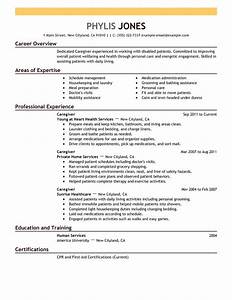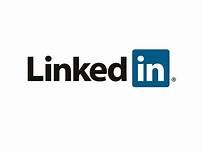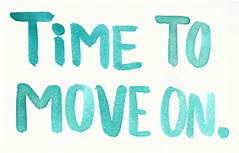The internet has made it easier to job hunt, and you have far more options in the search than there once were. In fact, many businesses require you to apply online and don't even have applications in stores anymore. The hunt is only part of the process of finding a job though, so when you're wondering how to find a job, there are some things you need to know.
Finding a job, or numerous jobs, to apply to is often the easiest part of the job hunt. Half of them won't call you back, and when you do get an interview, you're usually up against hundreds of other candidates. You may have to have some pretty impressive skills in order to beat the crowds.
How to Find a Job – The Top 8 Tips
When you're looking for work, there are some things you'll want to do and have to make the experience smoother. The following list includes a few useful tips to help you learn how to find a job, and they might even help you keep it.
www.youtube.com
1. Start by Perfecting Your Resume
Your resume is one of the most important keys to getting a job. The thing is, if you're applying to jobs in more than one field, you're going to need resumes catering to each of those fields. If you apply to a sales job with a resume tailored to nursing you're probably not going to get the job (you probably won't even get called for an interview).
Not only is what’s actually on your resume important, but so too is the length. Two pages is the most agreed upon size for a resume – three pages is OK if you have a lot of great experience that is relevant to the job(s) you're applying to.
The more info you have on your resume, the more straight-forward you want the info to be (to keep the reader interested long enough to call you for an interview).
Aside from your contact info, your resume should include your employment history (starting with your most recent job relating to the career you're applying for), your education (also relating to the job your applying for), and any memberships or volunteer work. A summary statement and job objective used to be important, but many employers see them as a waste of space these days.
2. Get Your Resume Online
If you don't have a LinkedIn account, you're virtually invisible. Anyone that is on the hunt for a job these days needs to have a professional looking social media presence, and the best place to get that is through LinkedIn.
In fact, you'll find that some places you apply to online will ask you for a link to your LinkedIn account, so they can check you out online, without going through a printed resume.
Depending on the type of work you're looking for, you may also want to have your own website that works as an online portfolio. If you're an entrepreneur looking for clients, this is a must. If you're looking for work in design or modeling, among other visual jobs, a portfolio will help you in finding the best job for you.
3. Apply Offline Too
Not all businesses advertise their jobs online, and applying in person gives you an easy chance to make a great first impression. If you’re job hunting locally, get out and drive around. Look for signs for help wanted, and look for businesses that catch your interest even if they aren't hiring.
If you apply online to a place and don't hear back from them, stop in. You don't want to show up unannounced at a private business, but a public business is easy to just drop into and ask if there's a manager in charge of hiring you can speak to. Be sure to take at least one extra copy of your resume along, and be prepared for the possibility of an on-the-spot interview.
4. Know the Job
Whether you're switching careers, or you've been off the market awhile, you need to know the job you're applying to.
The job market is full of people looking at the same jobs as you, that's why you need to know every detail possible about the job. When you get the interview, do research on the specific business you're going to as well.
When you go in for an interview, you want to know as much as possible about the business and the position. Don't go in there asking what the job description is if it was in the ad about the job – employers want people that take the initiative on their own, rather than expecting the interviewer to fill you in on everything (they already have plenty of questions for you).
5. Know When to Move On
Badgering a place to hire you isn't going to get you the job – in fact, it will probably make your resume end up in the trash. Consider how many people are probably vying for the same job as you. That employer has a lot of resumes to go through and a lot of people to consider (some of which may have more experience than you).
Instead of calling, again and again, begging for an interview, call once to follow-up on your application and then wait. If they found you to be an interesting candidate, they'll call you.
6. Practice for Interviews
Always practice interviews before you attend them. The interview process is another important step in how to find a job. Know the best questions to ask, no matter what type of interview you're participating in. You may be in group interviews or one-on-one – the interview process will also allow you to learn more about a position, so you can know if it's the right one for you.
Do some research on the likely questions you'll have to answer, depending on the type of job you're interviewing for. Get some practice with your interviewing skills and techniques – have a friend or family member ask you questions.
The smoother your answers come, the more likely you'll get a follow-up interview or a job offer.
7. Always Send a Thank You Note
Potential employers are taking time out of their busy days to talk with you about the job they have to offer you, the least you can do is tell them “Thank you.” The best way to do this is with a thoughtful, handwritten note.
You can do a little online research to find a template, but don't make your note robotic and boring – make sure it's tailored to the business, the job, and the person you interviewed with.
You can email the “Thank you,”if you've been corresponding with the interviewer via email. If not, send it snail mail, but get it in the mail the day of or day after your interview – you want them to remember you.
8. Be What They Need
From sending out your resume or filling out an application to attending an interview, the one thing potential employers want is proof that you are the right candidate for the job – and to be that candidate you need to show them what qualifications you have and how much interest you have in this position and this company.
These things will show through the info on your resume (tailored to a specific job) and the way you answer questions in the interview.
You can't be what a company needs if you don't know what they need. Research the company as much as you possibly can by visiting the company's website and getting to know their products and services. Show them your knowledge and tell them how you can do something for them that other candidates might not be able to do.
Where to Look for a Job
What type of work are you looking for? Where you look will depend on that. If you're working from home, you'll be searching for work from home. If you want to work a job in retail, go where retail jobs are found (malls are great for this).
A few great websites to search for jobs, in general, include the following:
How to Find a Job – Are You ready to Find Yours?
Now you know how to find a job, from looking for it to scoring it.
Next, it’s the perfect time to actually start job hunting - don't forget your resume!











